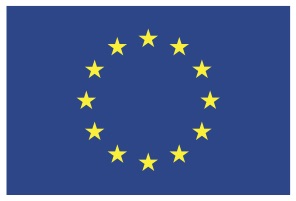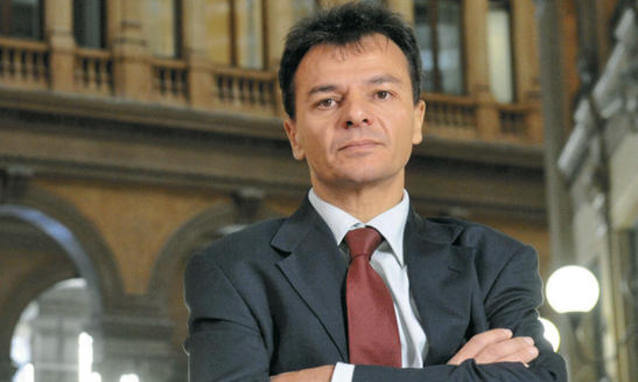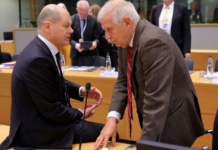By Idar Helle
In the theatre building Volksbühne in Berlin Yanis Varoufakis, SYRIZA first finance minister and the Greek frontman in the debt negotiations with the EU in the spring of 2015, this week initiated a federalist movement for a strengthened European Union project. It is a hefty historical matter Varoufakis and “Democracy in Europe 2025” (abbreviation DiEM) now dives into.
Well into the mid-1970s the European left sailed along with a steady wind astern. Despite the neoliberal basis of the Rome Treaty (1957) large parts of the left held up the ideal of an ever more tightly knit European Union. At the inaugural meeting of the French Socialist Party in Épinay in 1971 Francois Mitterrand said in all seriousness: “Europe will become socialist or not come to be.”1
The statement was an expression of a political illusion that has characterised social democracy and many socialists’ outlook on the EU from mid-1950s and up until the present day. The Achilles’ heel of this European vision was that it so rarely was expressed in the treaties, directives and economic policies of the EU.
The basic elements in the European integration project came from other sources: the geopolitical interests of the US, West Germany’s ambitions for industrial expansion, and the French president, Charles de Gaulle’s, will to shield the agricultural sector and secure the autonomy of French foreign policy. It was not before the energy crisis made its presence and the unemployment rate began to rise in the mid 70s that the absence of a European social dimension was acknowledged as a problem by the trade union movement and the left in the countries taking part in the EC. The market and currency reforms that characterises the EU today were established in the following years, but the economic growth within the union was uneven and always lower then what the EU Commission had estimated.
EU history since 2000 has been a grim mask fall. The EU institutions and the governments of the leading member states have set aside all social policy and spearheaded economic austerity policies that create mass unemployment, new poverty and precarious living conditions of a scale that the continent has not seen since the 1930s. As Dag Seierstad uncovers in his op-eds in the Norwegian newspaper Klassekampen, measures have struck down as shock grenades in the working class and sections of the middle class: eastward expansion of the EU and massive labor migration, and dumping of wages and working conditions. The Laval quartet of worker hostile decisions in the European Court. Transfer of the banking industry’s loss onto citizens in the wake of the financial crisis. The EU institutions’ bulldozing of the national economy and the people of Greece, and the southern European euro countries. Brussels new financial management regime that ensures minimal wage growth and require dismantling of workers’ and social rights.
After the profound banking and debt crisis erupted in 2008 it was as if the Europeans’ century long capacity to rise up when injustice and exploitation becomes to obvious, had been put out of play. With the savings and the belongings of the communities the political establishment made sure the bailout that kept the banks and finance capitalism alive were put into life, while people, labour unions, left parties, and social movements was as frozen to the ground, powerless and paralysed.
Then the spring of 2011 came to the Mediterranean, and to the left in Europe. That year the 15M in Spain and the Syntagma movement in Greece turned out to be two of the most powerful and persistent social movements on the continent since the the ’68 decade (1968-78). In both countries the movements changed how the inhabitants, and especially young people, now think and go about socially; they have become acting political subjects in their enviroments.2
Four years later, in 2015, the political parties that were spurred on by 15M and Syntagma, won political power at the local and national levels in the two countries. In Greece, Syriza was the first party to the left of social democracy in Western Europe to win a parliamentary election after World War II. In Spain the new left populists Podemos came in and took an increasing part of the electorate. In parliamentary elections last December they received their definitive breakthrough with over 20 per cent and ended just behind the Social Democrats in PSOE.
The political developments in the Mediterranean 2011-15 is especially important in understanding the left’s settlement with the euro and the EU project, which seems to be approaching. Both Syriza and Podemos owes much of its popularity to their promises to break with austerity policies the governing parties have implemented under the close supervision of the EU institutions. After Prime Minister Alexis Tsipras and Syriza on 13 July last year surrendered to the EU’s conditions for a new loan program, it was early last fall established a European email network to coordinate a possible exit from the euro zone on leftist political grounds.
The network of “Left exit” (abbreviation Lexit) will look at opportunities to assert democratic sovereignty and pursue an economic policy that puts people before the mismanaged banks and private creditors’ interests. Such a pronounced Lexit spokesman is sociologist Frédéric Lordon, Research Director at the CNRS in Paris, who in French polemic style criticised Syriza as well as Podemos to submit to the EU instead of the necessary break with Brussels and Berlin.3
The Lexit network has quite a different structure and approach than Varoufakis’ federalist initiative DiEM. The Foundation Statement of Diem in Berlin opens with a claim for immediate public access to all political decisions at EU level. It follows to demand a transfer of even more power from national states to the EU in four important areas: public debt, banking sector, public investment and the fight against poverty. This will be achieved through “a creative reinterpretation” of the EU treaties and charters. The French news and commentary site Mediapart.fr characterises the statement as “extremely vague” in regards to how DiEM’s program will ensure a more favourable development of the EU in these areas.4
Lexit puts forward a far more intuitive political strategy to achieve its goals. To contribute to a leftist campaign to leave the single currency that will be concerted and coordinated, the network takes as point of partition where the particular debate stands in the individual country. In 2016, there is no doubt that it is the question of “Brexit” or continued union membership for Britain that will be paramount. In other countries, like France, Italy or Greece yet again, the discussion of leaving the euro could fast become a hot topic, depending on the political mood shifts, and especially if the eurozone were to go into a new recession. Finally, a scenario can be mentioned which is often omitted, but that the British magazine The Spectator has brought up: The possibility that eurozone hegemon Germany, driven by growing domestic unrest and external conflicts in the euro zone, folds and returns to its own national currency. One strength of the debate in Lexit network, may be that it makes the parts of the European left who participate there, ready to go into the open historical situation which would arise in the EU and the rest of Europe.
After 60 years of historical experience of European federalism as a political idea from the left, emerges DiEM almost as an invitation to waste little time and even scarcer resources on a project that few will remember when it finally reaches 2025. Unlike the Varoufakis Declaration cocksure form but unrealistic content, Lexit network opts for a more open approach to how a future economic and political cooperation in Europe could best be organised. Only two elements seem to stand firm: One is that it assumed a clear break with what has become an increasingly authoritarian ordoliberalism within the EU and euro zone. The second is that the left side to a greater extent should unite behind a democratic sovereignty principle, ensuring that political decisions are a real expression of citizens’ political will, from the local level upwards.
The Lexit network represents a project under political development from within the European left. Currently lacking a clear foundation to another prominent and strategically important driving force in European left politics, namely the defense of common ownership and commons as fundamental organising principle of the community. Just as the fight against “welfare profiteers” and draft agreements to transatlantic trade and investment partnership and TISA has aroused gras root mobilisation in many Norwegian municipalities, hundreds of communities in Germany, France and the Mediterranean countries stand in sharpened battle to protect “what is public” (French : le commun) from being taken over by private capital.5 Success could provide a strategic advantage to the left and Lexit, that is if a closer link between the management of common property and the principle of democratic sovereignty can be found.
The most striking absence in the Lexit network so far is an understanding of why making alliances are needed and how it can be done. It was this very ability of the ‘no’ movement in Norway, and its willingness to plunge deep into the centre and also over to the right, that secured the outstanding victories in EU referendums in 1972 and 1994. At the same time both of the victories were built around a political foundation linked to arguments about sovereignty, democracy, welfare and international solidarity that made the progressive hegemony on the ‘no’ side unfazed and unthreatened by the right side. In this particular area Norwegian leftists should be immodest enough to share their alliance experiences to their fellow Lexit activists and the Left in the euro zone.
If the option is Brussels’ final dismantling of the social states in Europe, this exchange of experience stands as solidarity understood as enlightened self-interest. Because, not even in Norway, can a universal welfare state in a single country in Europe survive in the long run.
–
1. «L’Europe sera socialiste ou sera pas», quote from Francois Mitterand’s speech during founding congress of the Parti socialiste in Épinay, June 1971.
2. Sophie Beroud (2014), Une mobilisation syndical traversée par le soufflé des Indignée? La ‘marée verte’ dans le secteur de l’education à Madrid. Savoir/Agir 27: 49-54. and Idar Helle (2015), A new proletariat in the making? Reflections on the 14 November 2012 strike and the movements of 1968 and 1995. Transfer. European Review of Labour and Research, Volume 21 Number 2: 229-241.
3. Frédéric Lordon (2014), La malfacon. Monnaie européenne et souverainété démocratique. Éditions LLL, og Lordon (2015), The Left and the euro: liquidate, rebuild, blog entry versobooks.com.
4.Mediapart.fr 03.02.16: «L’Europe que dessine Yanis Varoufakis».
5. Se Linn Herning (2015), Velferdsprofitørene, Forlaget Manifest, and Pierre Dardot and Christian Laval (2014), Commun. Essai sur la révolution au XXIe siècle, La Découverte.
This article was first published in the Nowregian newspaper Klassenkampen (11.2.2106) under the title “European Federalism versus Lexit”











